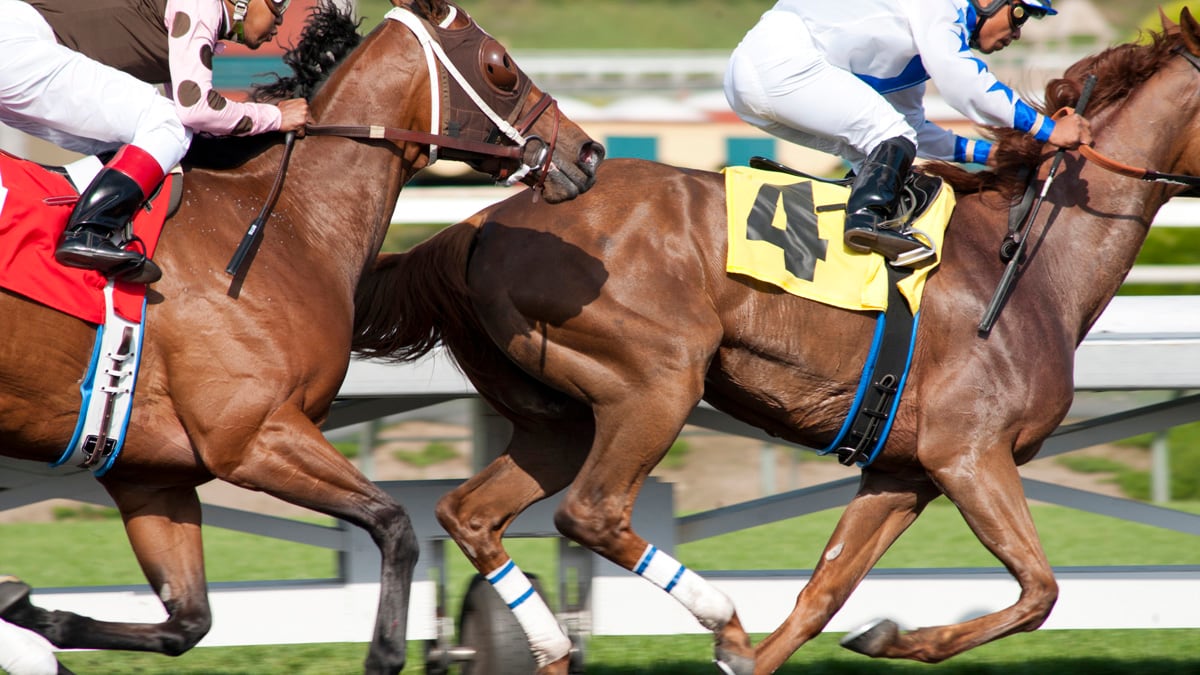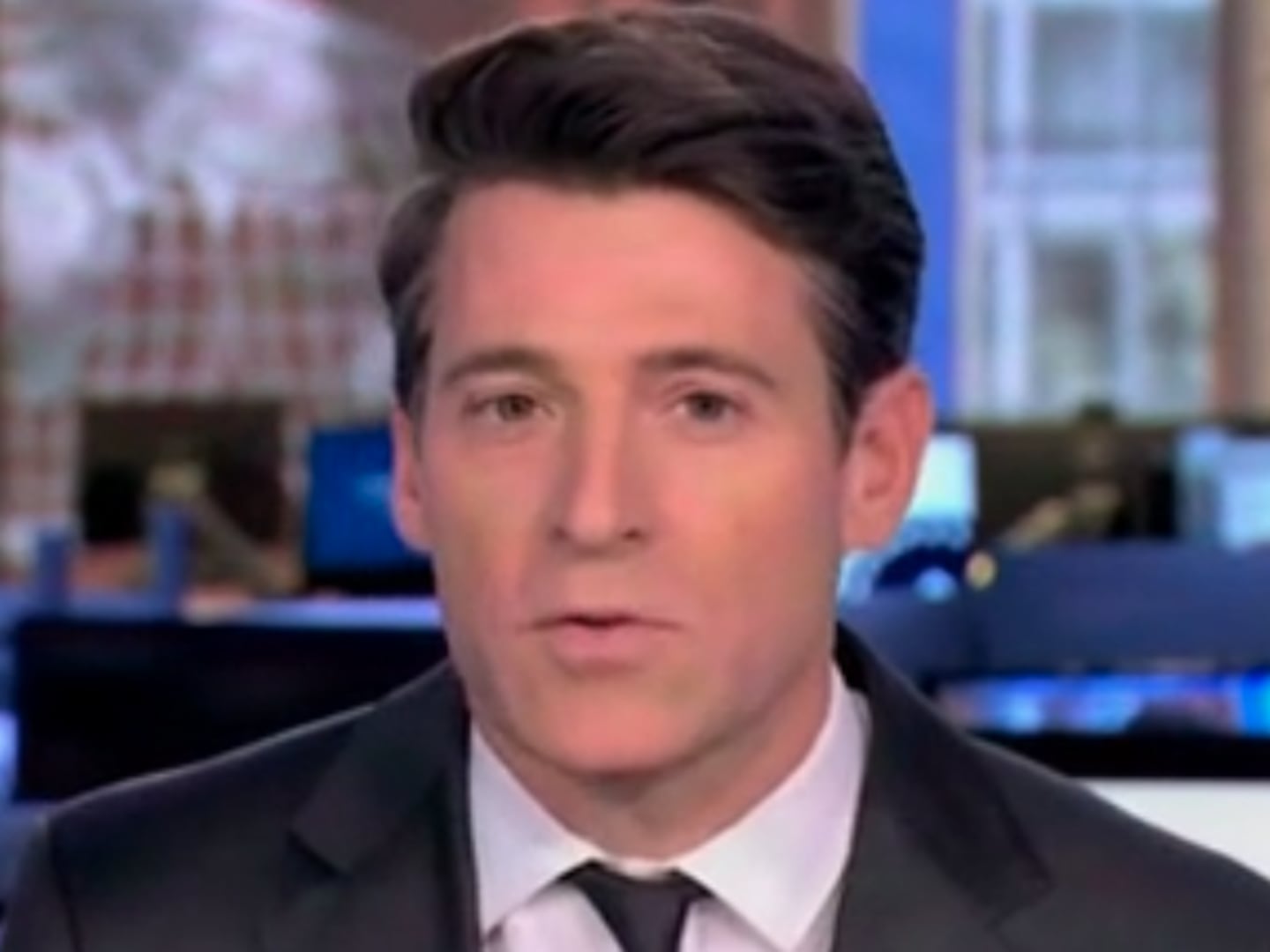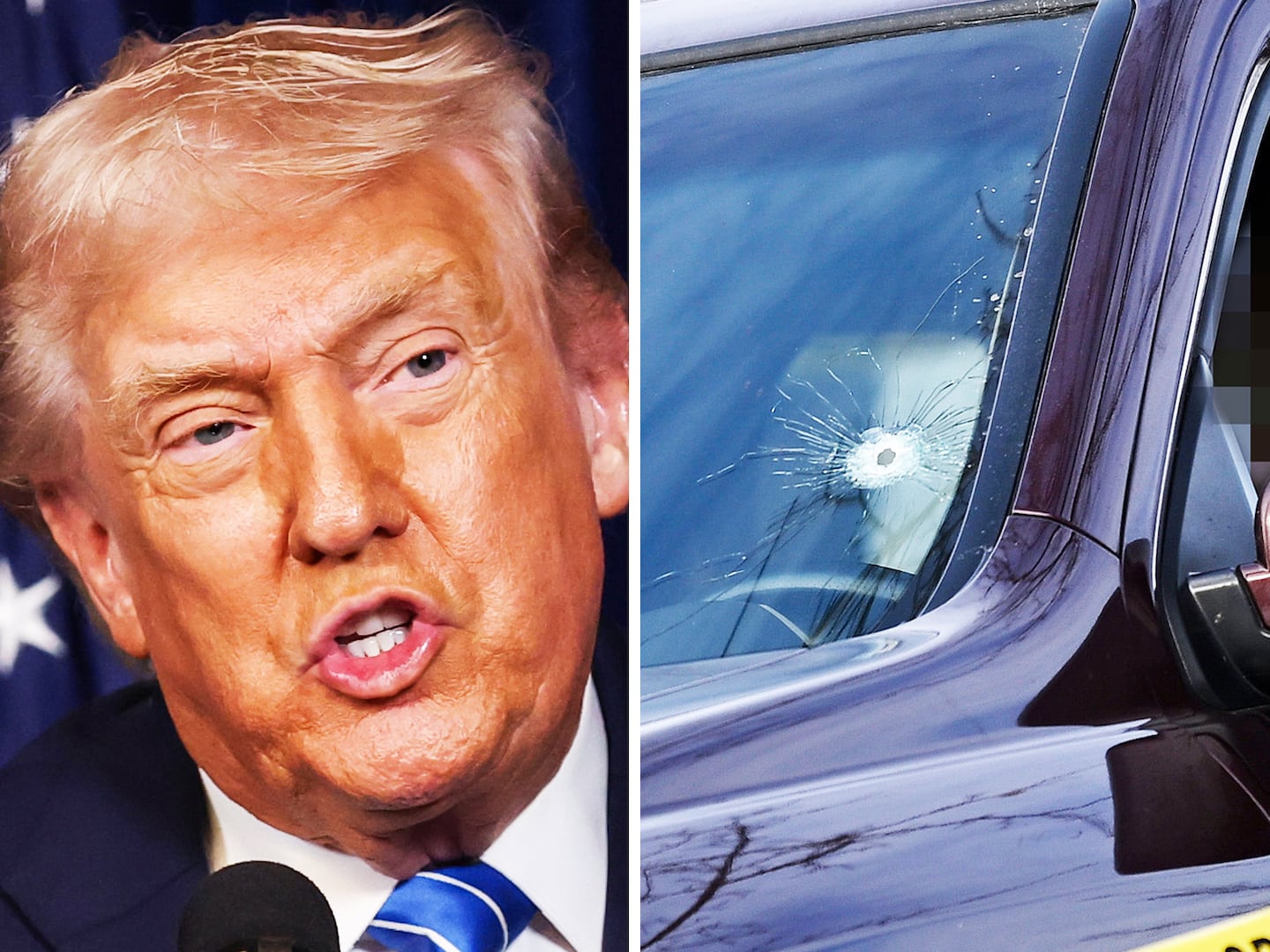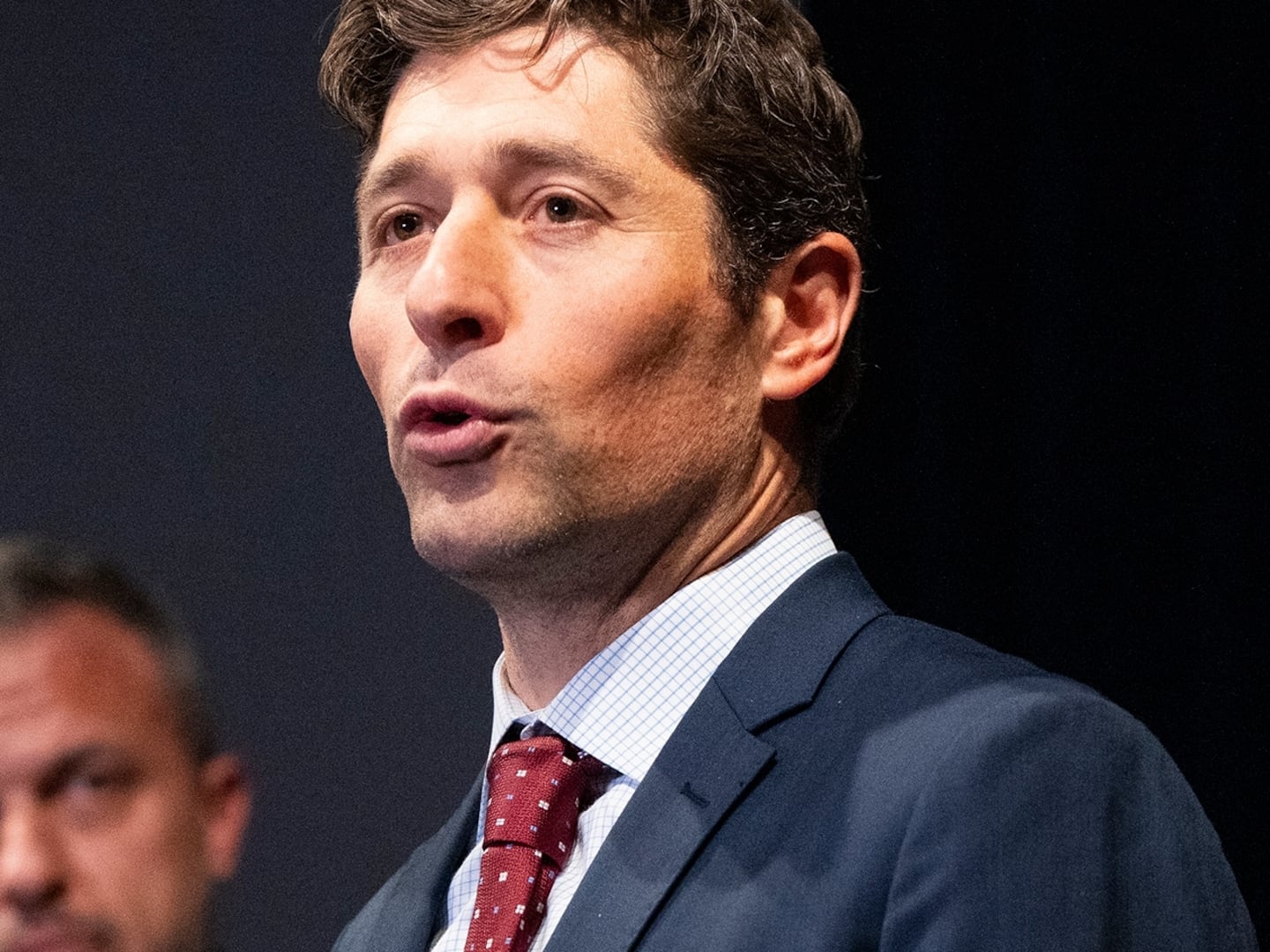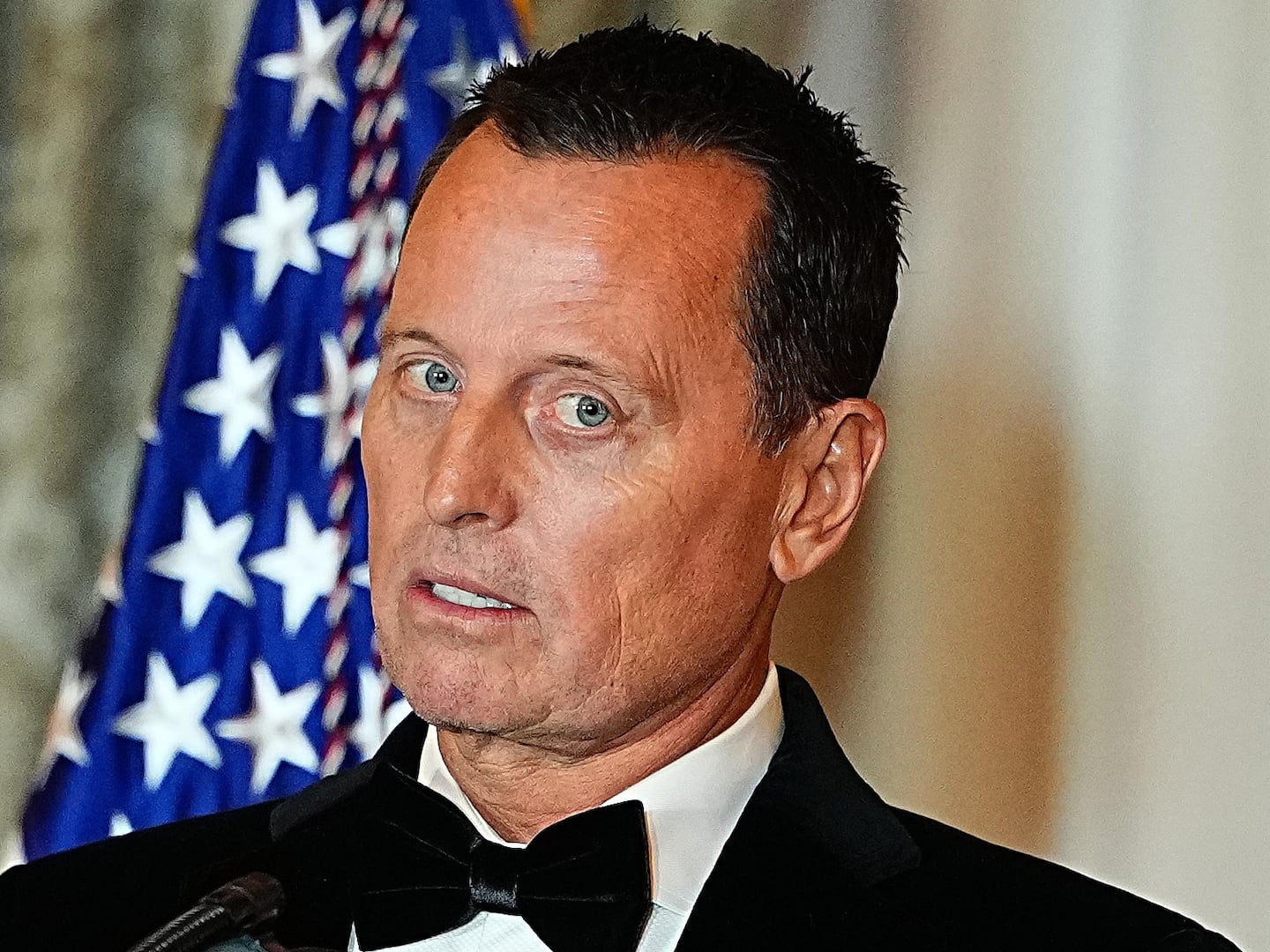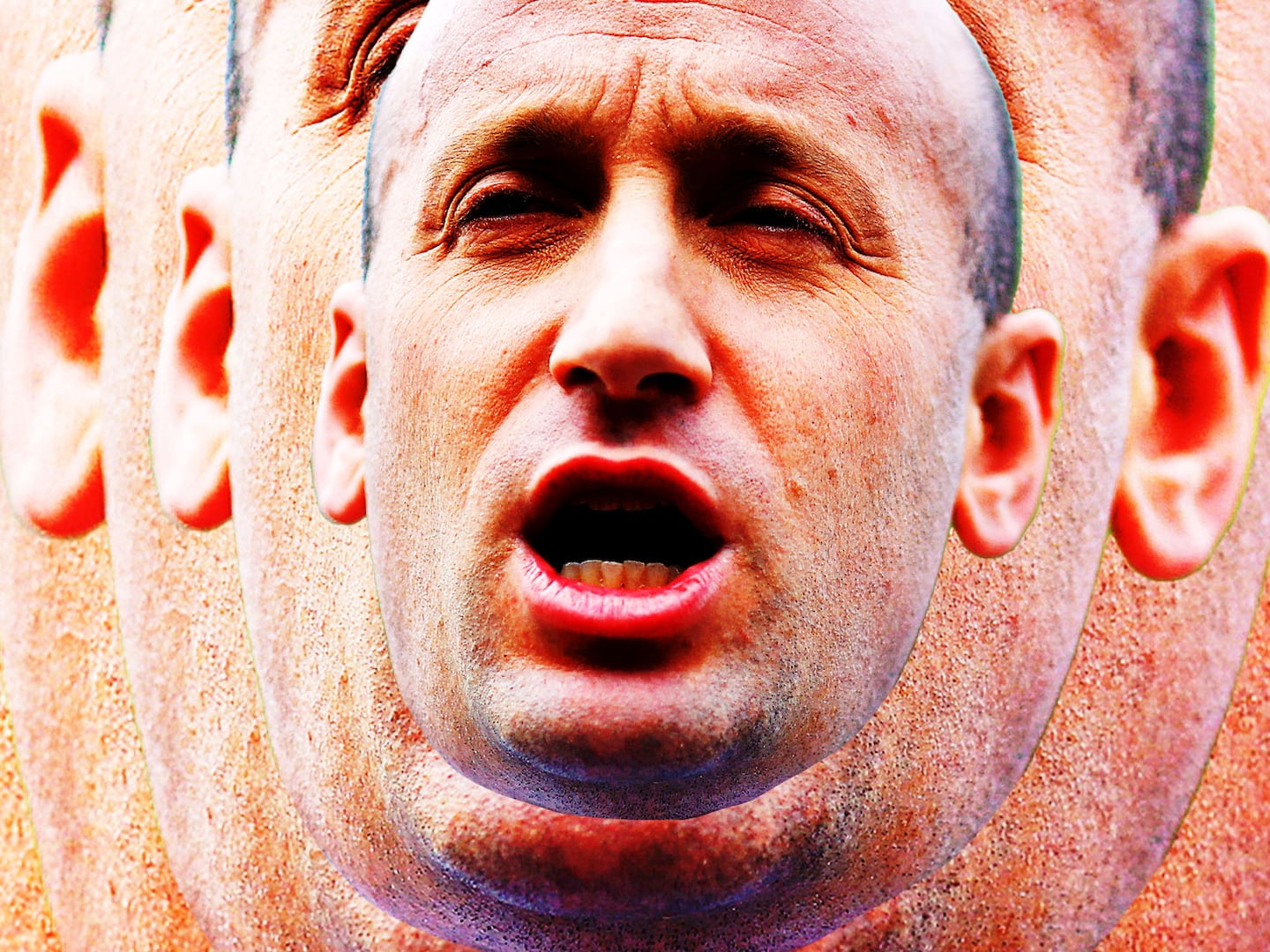Farm kids are educated early about the events that bookend life. Time spent around barns and pastures will provide quick, and valuable, instruction regarding how life begins, and how it ends. Agriculture is, at its core, a system that attempts to control these two events, and the key lesson of husbandry is that while it is worth trying, one cannot achieve total control of the situation.
Animals will be born, and will die, in ways that are unexpected. When one combines the very urban pursuit of the production of entertainment with the very rural pursuit of agriculture—as on the HBO series Luck, which was cancelled this week due to the unfortunate death of a horse while the show was filming—one is guaranteed to find that the marriage of the two will be fraught.
The last racetrack tragedy to become a national story was the death of the brilliant filly Eight Belles, who fractured both her ankles trying to chase down a horse named Big Brown in the final furlongs of the 2008 Kentucky Derby. She got under the wire in second place, and collapsed on the clubhouse turn. (There were of course thousands of breakdowns between, away from the cameras and the press.) I was covering the 2008 Derby for the New York Sun, and noted the uncomfortable camera action that took place while Eight Belles heaved her final breaths in the dirt. The cameras didn’t know what to do, they panned away, searching for anything to show instead of the gruesome scene unfolding. The producers couldn’t yell, “Cut!” Millions of people who had tuned in to watch a sporting event found themselves thrust into an agricultural lesson for which they were not prepared.
With Luck, someone did, in fact, yell “Cut!” Canceling the series won’t change anything about the death of the three horses, but I can’t see any other option. If horses are dying while your cameras are rolling, you must quit.

The last death had nothing to do with cameras, but it happened near some. It had nothing to do with racing, but it happened near a race track.
There is, in the cancellation, a tacit admission of culpability where there is none. Reports of the death give the following account: The horse reared up while being walked to the barn, fell over, and busted up her head. She was irrecoverably hurt, and she was euthanized.
I don’t mean to discount it in the least, it’s awful stuff. It’s exactly the sort of gruesome bad luck that people who deal with animals confront. They are experienced with the grim side of husbandry, but they are not inured to it.
Luck did an admirable job, in fact, of showing just how sensitive racetrack people are to the deaths of the animals in their charge. Nick Nolte’s character, a wizened old trainer, is motivated by the execution of a horse he worked with in the past. (It’s a rehashing of the gut-wrenching end that met Alydar at Calumet farm.) Tom Payne’s character, the young jockey Leon Micheaux, is riding a horse when she breaks down, and sits with her, stroking her head and cooing to her while the vet puts her down. He is shaken, and the depth of the emotional impact that such events have on jockeys is noted when Gary Stevens, playing an older jockey, snaps at Richard Kind, playing a jockey’s agent. He has no knowledge of just how deeply this event cuts.
Everyone at the track—both at the fictional track in Luck, and at the real Santa Anita—knows that death is out there, looming. (It’s not just horses: only jockeys and soldiers are followed by ambulances while they earn their pay.) But television crews, and television audiences, are caught off guard.
I can’t see how HBO could have done anything but cancel Luck, but I wish it were otherwise. For in canceling the show the network has ensured that Luck becomes known, forever, as the show that killed horses about a sport that does the same.
Of course, Luck wasn’t really doing the sport any favors anyway.
I can’t tell you how many times I’ve leaned against a barn, waiting to talk about a Big Horse, while a trainer talked to a vet about some horse no one has ever heard of.
Yet in the time I’ve spent at the track, I’ve never met a gangster. I never met an over-the-hill trainer or owner making a desperate play for glory by investing his hopes and dreams in one last horse. I was never sucked into a gambling ring.
Of course there are rings. Syndicates of people do pool money to play big pick sixes, but these folks don’t write their choices on napkins and show up at the track unshaven. One successful ring, in fact, was put into play by a very well-respected writer and editor, and I’m sure that the people contributing to it had about as much in common with the ragtag team of degenerate gamblers in Luck as the show’s other big horse, Pint of Plain, had with the goat that hung around his stall.
The closest thing I ever saw to a race that was fixed was when I witnessed a last-minute jockey change that put a Hall of Fame jockey who had announced his retirement in the irons for what was going to be his last race—it seemed obvious that there was a good-natured conspiracy afoot to send the guy out with one last trip to the winner’s circle. (I scrambled to the betting windows, of course, and bet with both hands on that horse’s nose. The bet didn’t pay all that well, but I cashed the ticket.)
I don’t begrudge these inaccuracies anymore than I begrudge the shot of the horses going around the clubhouse turn in a six-furlong race at Santa Anita (a race at that distance at that track is a one turn affair, starting on the backstretch). Caricature, hyperbole, and melodrama make better television. What’s more, I think that a lot of us who like the ponies don’t mind a bit of fantasy that makes the track a little more cable-ready than it really is.
I am saddened, though, by the final message. The cancellation of the show is an affirmation of the idea that racing equals death. The death of Eight Belles (and Barbaro before her, and Go for Wand, Ruffian, and other high-profile breakdowns) can at least be leveraged into the improvement of the sport. Tighter restrictions on drugs, examination of racing surfaces, and a plea to breed some stamina into these brittle thoroughbreds engineered for early speed. The death of the third horse during the filming of Luck was just bad luck, and nothing good will come of it.
I, for one, am simply going to turn the channel. The beautiful, brilliant white three-year-old Hansen took the Gotham Stakes at Aqueduct on March 3 with a wide run that packed more drama into one minute and 43 seconds than could be ever be scripted, while in Florida, Union Rags—bested by Hansen when last they met, as two-year-olds—returned to winning form and tore away from the pack like the wind was behind him to win the Fountain of Youth Stakes. There’s racing to watch.

